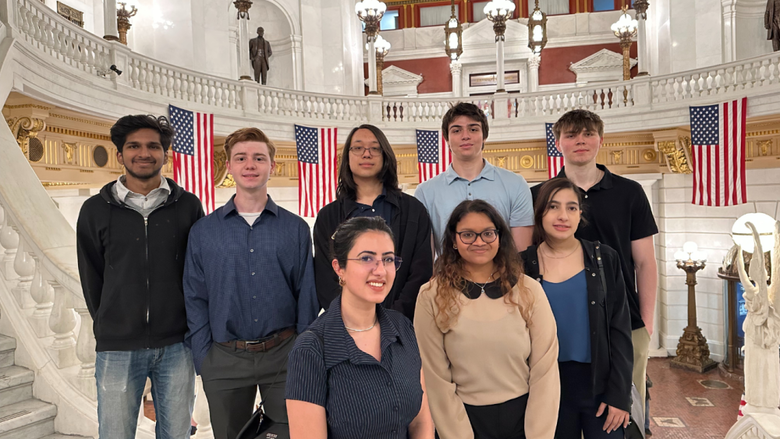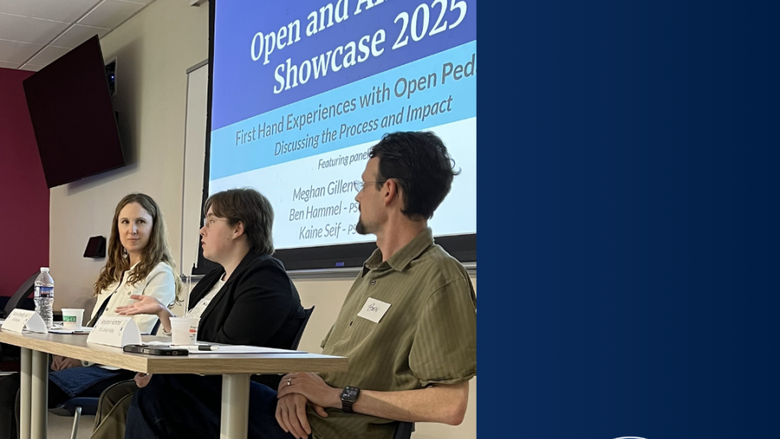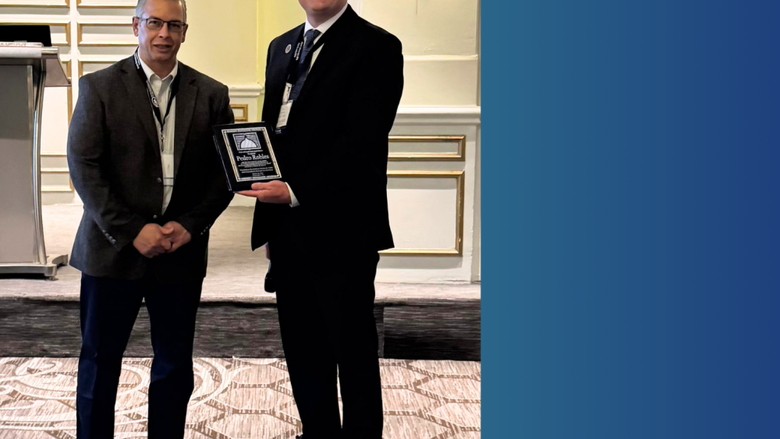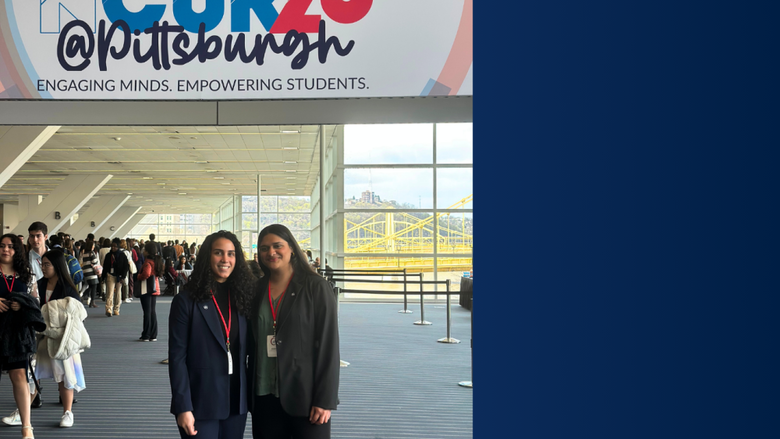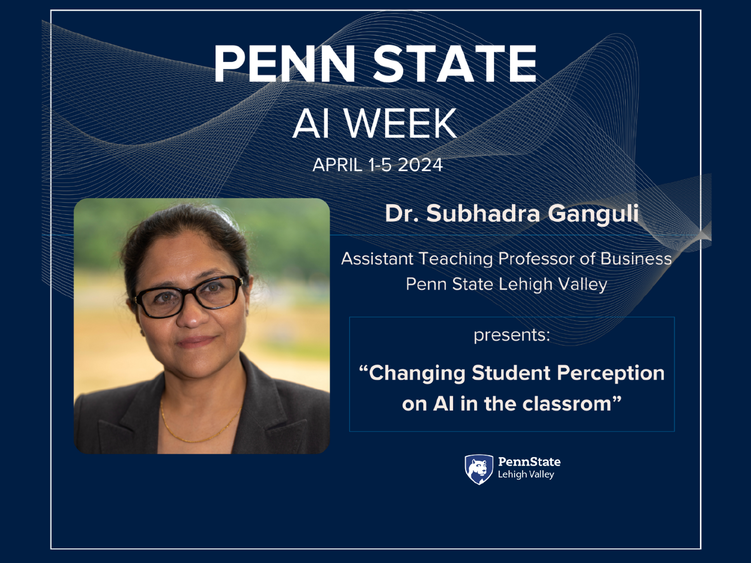
Dr. Subhadra Ganguli, Assistant Teaching Professor of Business at Penn State Lehigh Valley, discusses her latest research on AI integration in various industries as well as its useful role in the classroom.
CENTER VALLEY, Pa. — As part of a research project on students’ perception of artificial intelligence (AI), Subhadra Ganguli, assistant professor of business at Penn State Lehigh Valley, had to first gauge their familiarity with generative AI. She conducted an informal survey of 11 students in one of her business classes and discovered they were not as familiar with AI as she anticipated.
“I asked them how they felt about AI," Ganguli said. "Have they used it? The immediate responses were, ‘No, we haven’t.’ [Penn State] has strict policies around using AI. Some mentioned they’ve used it outside of academia, in their personal lives."
Using her survey as a baseline, Ganguli asked her students to complete a small personal task — first, on their own, and a second time using AI.
Ganguli’s study was the focus of her presentation at the "Research and Discovery Forum" at Penn State Lehigh Valley on April 2 during the campus’ AI Week. The forum is held twice a semester and features speakers sharing research projects they are currently working on, previously published work or an area of interest. Formerly known as the "Faculty Lecture Series," it was rebranded to reflect its alignment with Student Affairs and be more welcoming to students. The forum’s steering committee consists of Tracey Carbonetto, lecturer, engineering; Maung Min, associate teaching professor, business, and director of business programs; and Julie Ealy, professor, chemistry.
“We had some brainstorming and thought ‘Research and Discovery Forum’ was more apt,” Min said. “Our job is to feature two impactful speakers per semester — one internal and one external. That’s what we’ve been doing since last fall.”
Carbonetto said Ganguli’s work is especially timely as faculty are struggling with “why” to use AI. Ganguli’s presentation sought to explain a few reasons why faculty should use AI in their course instruction.
Initially, Ganguli’s students were hesitant about using AI.
“When we started looking at it, some students felt AI would be taking their jobs or they would become redundant in their jobs. AI is so powerful,” Ganguli said, noting that students were surprised AI did not meet their performance expectations. “They came back saying, ‘I did my work using my normal route, in the normal time I usually do my work, and I got the same result. I did my work by prompting AI and found it surprising AI didn’t do the task as well as they thought it would. Their own way of doing things was better than having AI do it for them.”
Students concluded AI is a helpful tool and can help complete certain tasks in less time but is not as powerful and all-knowing as they first thought, Ganguli said.
“For me that was the starting point of changing perception,” Ganguli said. “I’m still presenting on the very initial findings of my work. Recent research and data shows AI is changing business in very different ways — it’s needed for cybersecurity, for instance. Businesses want to use AI, and the AI they are using is not getting rid of people.”
There is a net increase in demand for employees who can use AI effectively. She pointed out employability of graduates depends on AI literacy in almost all areas of today’s business world.
“Faculty have a responsibility to prepare students for these opportunities," Ganguli said. “We don’t know much about it. Just as businesses experimented, we [educators] must think about AI use in the classroom.”
Ganguli’s presentation exemplifies what the forum is all about — faculty sharing work in an area new to many within the campus community.
“It also provides an opportunity for other faculty or students who want to get involved with research. It transfers information just as a classroom does,” Carbonetto said. She was particularly interested in how this topic might apply to her engineering students. “I’m interested in professional skills development for my engineering students. How can I use AI in developing these skills in my students? I got a great research topic based on what Dr. Ganguli is working on.”
